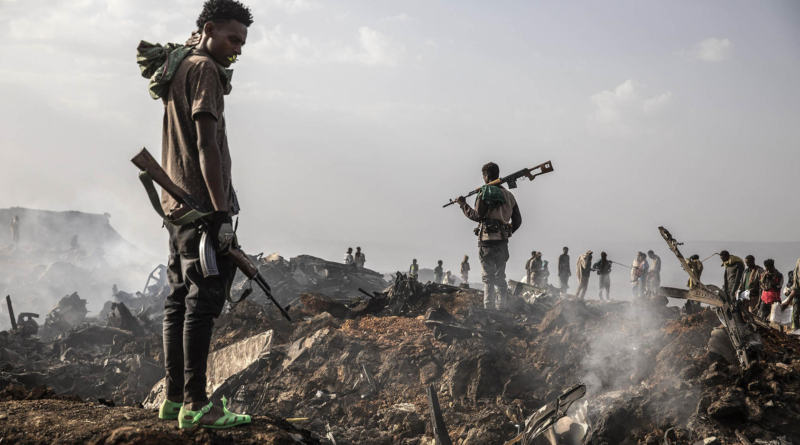Genocide, famine, and war in Ethiopia
Professor Jan Nyssen and a team of researchers at Ghent University estimated “383,000 to 600,000 civilians died in Tigray between November 2020 and August 2022.” Ethiopia has been fighting a brutal civil war since Nov. 3, 2020 that ended less than three months ago.
Although this issue may seem far away, the consequences hit home for the 20,000 Eritreans and Ethiopians living in the Bay Area. Hundreds of Bay Area ethiopians, eritreans and supporters came to downtown San Francisco to protest the conflict in 2021, about a year into the war. Real people near you are dedicated towards this cause. Such as the Tigray Community San Jose, a non-profit organization that is “committed to serve, support, and advance the interests of the members of the Tigray Community in San Jose and surroundings.”
The conflict began as a struggle for the position of Prime Minister in Ethiopia. For many years, the Tigray People’s Liberation Front (TPLF) held power in a questionable autocracy despite being an ethnic minority in Ethiopia. In 2018, Abiy Ahmed Ali, a non-Tigrayan Ethiopian, became prime minister after being endorsed by international powers as well as many Ethiopians. Many Ethiopians thought he represented a chance for peace, and in 2019 he won the Nobel Peace Prize for ending violence at the Ethiopian-Eritrean border. Abiy promised open elections for Prime Minister of Ethiopia in 2020, but when the time came for those elections he instead extended his term. The Tigrayan people were outraged, wanting a new election so that they could try to elect their own candidate. They began to hold local elections against the federal law and stated that if the government intervened it would be considered a declaration of war.
Abiy Ahmed Ali, the Nobel Peace Prize Winner, launched an offensive in Tigray with the Ethiopian National Defense Force (ENDF) at his service. The Tigray Defense Force (TDF) retaliated and vice-versa and it escalated into a full-out war.
Eritrea, the former enemy of Ethiopia, allied with them, and Tigray became surrounded on all parts of their border by enemies. A resource blockade was set up around Tigray, stopping food, water, and medical supplies from coming in. An astounding number of Tigrayan civilians fell victim to food insecurity, “The United Nations Acting Humanitarian Coordinator for Ethiopia warned that the de facto humanitarian aid blockade of Tigray potentially put an estimated 5.2 million people, or 90 percent of the population across the Tigray region at risk.”
Food insecurity is not the only risk involved in this conflict. Ethiopia had the most ever internally displaced people in 12 months in one country with a devastating 5.1 million refugees.
The United States government has characterized this conflict as an ethnic cleansing against Tigrayans since 2021. Citing the war crimes of violence against children, ethnically targeted killings, and rape as a weapon of war. Because of this, America sanctioned Eritrea, as well as Ethiopia. These sanctions were not devastating to Ethiopia because they were imposed mainly on individuals dedicated to the war effort. The sanctions on Eritrea were more prominent as the US sanctioned the Eritrean Defense Force as well as Red Sea Trading Corporation, the largest importer in the country.
Nonetheless, Abiy ultimately won the war on Nov. 2, 2022 as the ENDF made rapid advancements on Tigrayan land. Peace talks were held and Tigray was forced to make major concessions, one of which being their disarmament in one month’s time. Although agreed long ago this disarmament is still being carried out very recently. “Armored tanks, rockets and mortars were among the weapons transferred to the federal army on Tuesday,Jan. 3).”
The devastating food blockade was lifted some time after peace talks were held but hunger and malnutrition is still a major problem. Humanitarian aid is now being distributed by countries including the US, but it will take time to reverse the impact of two years of starvation and war endured without medical supplies.
A return to normalcy is almost impossible for Tigrayans. The Ethiopian army is still present in many parts of Tigray. Unjust arrests, drone strikes, and ethnically targeted massacres persist for Tygrayan civilians.
We as Americans need to look outside the limiting scope of mainstream news services, which are incredibly western centric, and stay educated about the world as a whole. No innocent life is more important than another.

